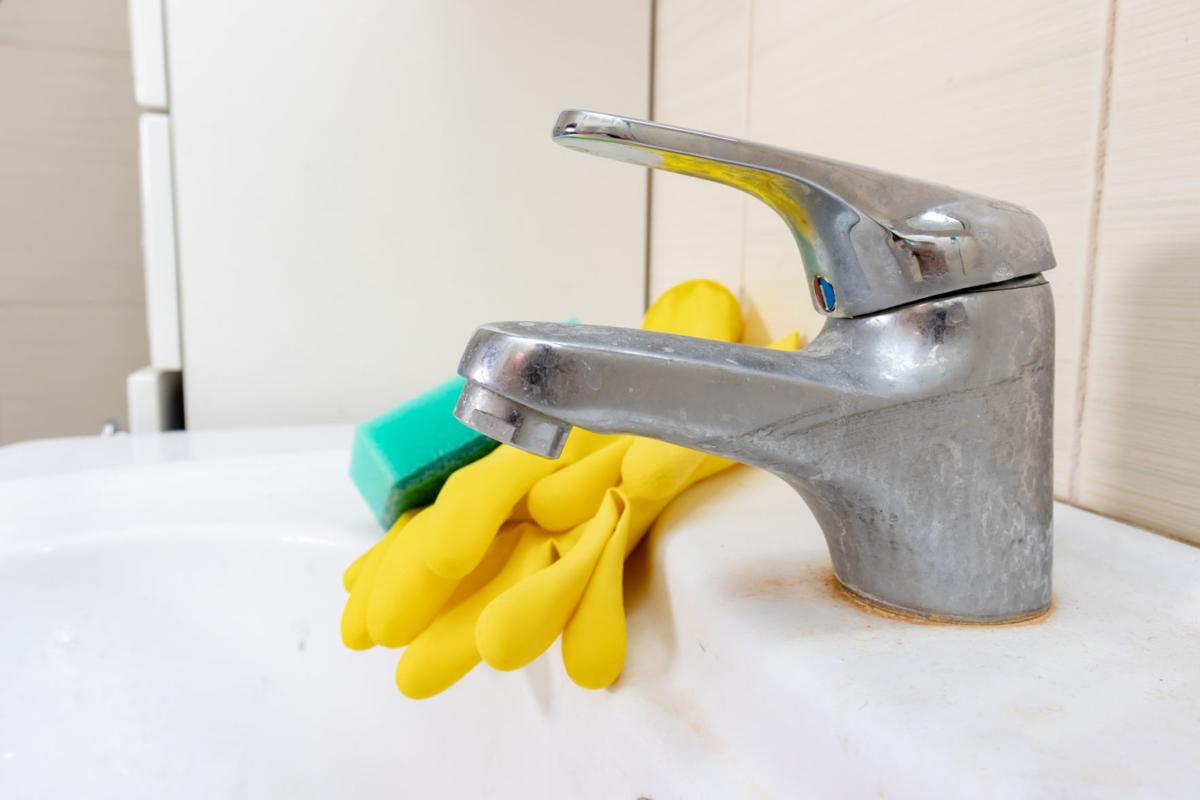Question: What is hard water?
Answer: Hard water is water that contains naturally occurring minerals like magnesium and calcium. Sourcing primarily from our rivers — the Salt, Verde and Colorado — most of the water in Arizona is between 15 and 25 grains of minerals per gallon. Our water is deemed extremely hard and for homeowners this can mean funky tasting or cloudy water, spots on your glasses, rough feeling clothes or calcium buildup on faucets and wear and tear on your appliances. Hard surfaces in your home like windows, tile and floors can also appear murky with hard water.
Q: Is it bad to drink hard water?
A: No, hard water won’t hurt you but, it generally does not taste clear and can have a funky taste and smell. A good quality purification system will give you clear water, minus the hard minerals and “off” flavor, at the convenience of your kitchen tap. A good system removes up to 98% of metals, pathogens, chlorine, and dirt, so your water smells and tastes like nothing but water. Rosie likes reverse osmosis units for purification. They fit under your sink with carbon filters and a holding tank. The water passes through the sediment filter removing large floaties; and then goes through the carbon filter to remove chlorine.
Q: Which is better, bottled or treated water?
A: Many people don’t drink from the tap anymore opting instead for bottled water or a filtration system. Treated tap water gives homeowners the most control over safe and healthy water. It provides a reliable supply for cooking or making tea and coffee as well as great tasting ice. Another great reason to use purified water, in refillable containers right from your own tap, is that it will help save the landfills from the 52 billion water bottles that Americans use each year.
Q: What does a water softener do?
A: The best kind of water softener is one that uses ion exchange. It removes hardness by replacing magnesium and calcium with sodium or potassium chloride. The amount of sodium added to your water is minimal. In an 8 ounce glass of water is 12.5 milligrams, equal to the amount of salt in a slice of bread.
Q: What are the benefits of owning a water softener?
A: The benefits are many:
- Skin and hair: Hard water can cause dry skin and hair. A shower in softened water leaves hair and skin smooth and less dry.
- Laundry savings: Save up to 80% on soaps and detergent by using soft water.
- Clothing: Soft water causes less wear and tear on the fabric and keeps fabrics cleaner and brighter.
- Plumbing fixtures: Soft water eliminates mineral build on fixtures allowing them to look newer longer.
- Appliances: Water-using appliances like dishwashers, washing machines and water heaters last up to 30% longer without the buildup of hard water.
- Dishes: Reduces dulling spots on silverware and etching on glasses and dishes.
- Windows and other hard surfaces: Soft water prevents soap scum and hard water deposits on bathroom fixtures.





